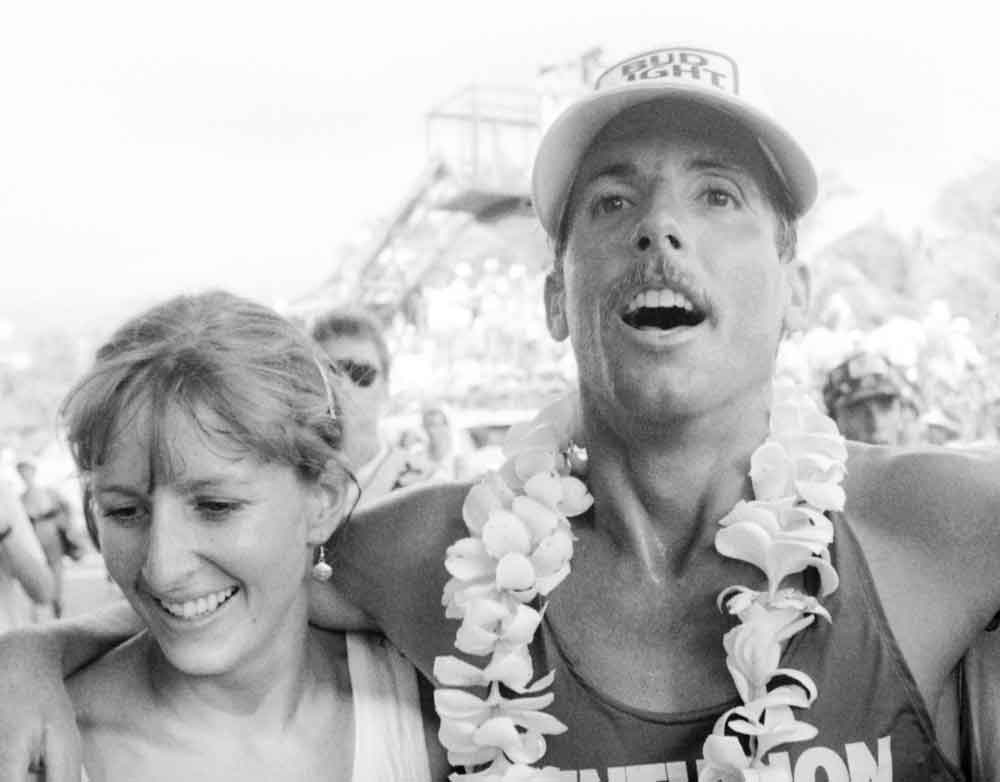Don't Pine for the Past—Especially When It Comes to Prize Money

Photo: Mike Plant
At Dave Scott’s first triathlon, the grand prize was a turkey. Three years later, when he raced his first Ironman in 1980, it was “almost like I had to apologize for my behavior,” says the Ironman legend, who was working as a masters swim coach at the time. So goofy was the notion of covering 140.6 miles under his own steam in one day. “People just couldn’t comprehend it—for a long time I didn’t say that I was a triathlete.”
It’d be an understatement to say a lot has changed since the early days of the sport, when race fields were made up of a “ragtag collection of lifeguards, injured runners, and handymen,” as fellow legend and tri historian Scott Tinley puts it. Triathletes were more weird than inspirational, and anyone getting involved had to have a hefty dose of self-reliance—there were no drafting police, save for other angry riders, no sponsors stocking aid stations, no coaches.
But if you think either of these pioneers spend much time wallowing in nostalgia for our sport’s original kooky flavor, think again; they know the startup days, while fun, aren’t better than after the IPO—they’re just different.
Yes, there was more of a free-spiritedness to the sport in the ‘70s and ‘80s. There were no uniformly contested distances, save for Ironman, and equipment was whatever you could find in your garage or hack together—no need to spend the big bucks to out-aero competitors. But, “the drafting was terrible,” Tinley says. “There was a lack of medical support, courses weren’t marked, aid stations had a Boy Scout with one cup of water for 800 people.”
RELATED: Things to Know Before Turning Pro
Gear development—and the professionalization of the sport through the Olympic movement and other big series like Life Time during the mid-2000s—“created an industry,” Tinley says. “It created tremendous job opportunities.” No longer did multisport-lovers have to train like Tinley or Scott to make a living in triathlon. But Tinley says it also changed the nature of the athlete.
On the pro side, for instance, athletes were once self-coached, often outspoken, and raced across all distances. It’d be easy to pine for those days of innocence, but if anyone back then could’ve scored some cash to cover their tri addiction, they’d have taken it in a second. “I wasn’t a professional athlete until 1982,” Scott says. That’s the year Bud Light handed him a check for $500 for winning the first race in their series—and the year he earned his first sponsor money from Nike. “I thought, ‘man, I’m on my way!’ I got $11,000 or $12,000 that year,” Scott says—he didn’t earn a dime for his Kona wins until a Kailua resident put up $8K for the winner in 1986. Today’s Kona winners earn a cool $120K.
But pros don’t even have to race Ironman to earn serious cash. Case in point: ITU and XTERRA pro Flora Duffy earned nearly $300K in 2017, not counting sponsorship money.
So while it’s fun to peruse pages of tri lore and imagine the energy of the 1974 Fiesta Island start line, it’s best keep in mind this nugget of wisdom from Tinley—the man who’s arguably spent more time than any other triathlete digging up the sport’s past to preserve it: “Nostalgia is dangerous if you remember only the good things.”
RELATED: How Do You Get Sponsored As A Professional Triathlete?